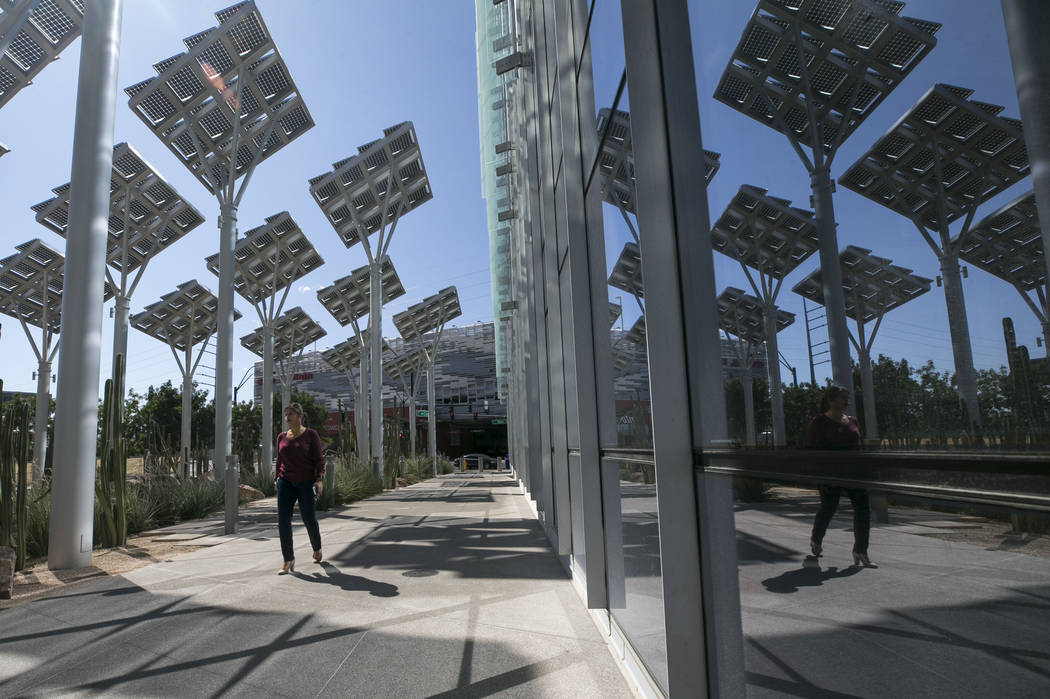New law opens door to solar energy for more Nevada families

More Nevada families and small businesses are slated to have access to solar energy with a new law.
Gov. Steve Sisolak signed a solar access bill Tuesday that directs NV Energy to develop between three and 10 solar access programs for low-income customers, residential customers who can’t install rooftop solar and disadvantaged businesses and nonprofit organizations.
Rose McKinney-James, a former commissioner for the Nevada Public Utilities Commission who worked with Democratic Assemblywoman Daniele Monroe-Moreno on the bill, said she is excited about the opportunities this law will provide to Nevadans.
“We’re looking back and making sure we include all aspects of the community,” she said.
What it does
NV Energy spokeswoman Jennifer Schuricht said the law will provide the opportunity for more Nevadans to go green.
The law will ensure that the economic and environmental benefits from smaller-scale solar projects within urban areas “bring value to all our customers and communities,” Schuricht said via email.
A quarter of NV Energy’s access programs will be reserved for low-income customers, half will be reserved for residential customers who can’t install rooftop solar, and another quarter will be for disadvantaged businesses and nonprofit organizations.
The law will create apprenticeships, jobs and job training opportunities related to solar construction, maintenance and operations.
“There’s a workforce development component to this bill,” McKinney-James said. “That’s a very exciting component to me.”
Criticisms
Some have doubts about the law’s potential.
“Don’t get me wrong, I think anything that has to do with solar is good,” said Guy Snow, president of Solar NV, a local chapter of the American Solar Energy Society nonprofit solar advocacy group. “I’m just not sure this is the best way to go about it. You force the utility to do it all.”
Snow cited a lack of clarity in certain parts of the bill, such as the utilities that will take part in the program. He said he prefers Property Assessed Clean Energy programs, which are tied directly to properties.
“There’s a lot of loopholes or unknowns with how this bill was written,” he said. “It’s unfortunate that now it’s going to take a year to interpret that.”
McKinney-James said the intent was for NV Energy, the state’s monopoly utility, to participate, and the bill was written to allow the Public Utilities Commission to engage with the bill and help develop certain parts.
“I understand, respect and appreciate those who want us to go further, but it’s in our experience that you have to start somewhere,” she said. “It’ll take a minute to get there, but by working with the utility and the commission, I still think we take an important step forward.”
She said the bill puts Nevada on the forefront for clean energy initiatives.
“I’m satisfied,” she said. “This is a really good start.”
Contact Bailey Schulz at bschulz@reviewjournal.com or 702-383-0233. Follow @bailey_schulz on Twitter.